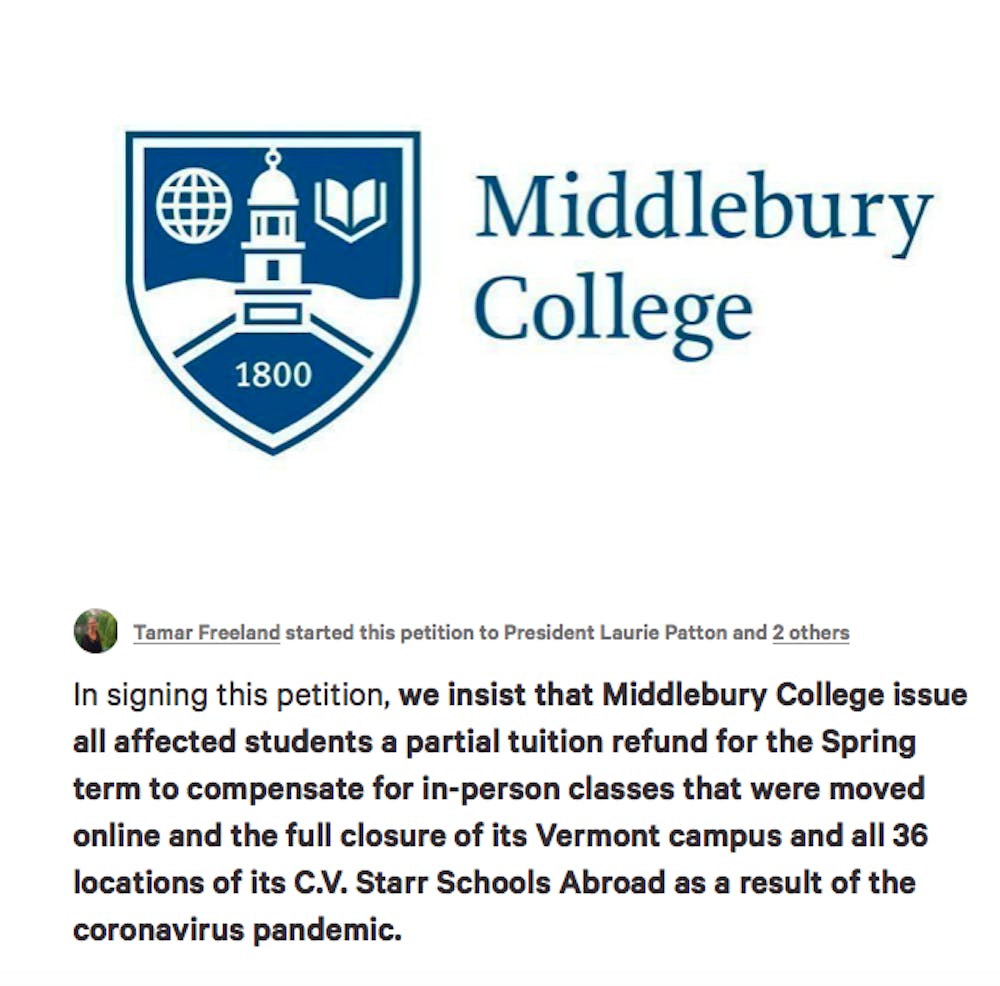A petition urging Middlebury College to partially refund students for the spring 2020 semester tuition has garnered just over 120 signatures since its release last week. Tamar Freeland, a Middlebury Language Schools Masters student based in Madrid, started the change.org petition. The petition comes a month after the college partially refunded up to $4,380 in room and board charges to residential college undergraduates.
Freeland was motivated to petition by what she considered to be shortcomings of the Middlebury Language Schools Spanish M.A. program in Madrid this spring due to remote learning guidelines. “My peers and I realized that the quality of our online classes was far below that of in-person classes,” Freeland said. She stressed that, even though professors remained the same and leadership was flexible with due dates and technological difficulties, students were not receiving all that they had paid for.
“[As] a masters student, my classes are supposed to be small discussion level courses,” Freeland said, mentioning that Zoom classes have made it difficult to break out into discussions with partners. “We are supposed to be engaging with each other, but even at my level, that’s not happening.”
After drafting a petition and seeking initial feedback from her peers in Madrid, Freeland published the petition online, directed to President Laurie Patton, Dean of International Programs Carlos Vélez and David Provost, executive vice president for finance and administration. Freeland has also sent a letter to the Office of the President with the same message. The college acknowledged Freeland, saying they would formally respond to Freeland’s request later this week.
In a statement to The Campus, the college stressed that this spring’s priority has been on student well-being and the quality of their education through remote learning guidelines.
“Our ability — in this unprecedented time — to provide continuity in teaching and learning is dependent on our existing revenue sources,” the statement read. “None is more crucial than tuition, which enables us to continue to pay the salaries of our dedicated faculty and staff through the academic year, and therefore we are not in a position to offer tuition refunds.”
Freeland’s petition comes in the wake of much larger student-led motions at other colleges and universities to have spring semester tuition partially refunded. In many cases, class action lawsuits have been filed by students against their institution, including schools such as the University of Vermont and Brown University. Freeland mentioned that while partial fee and tuition refunding is widely applicable to all universities, individual institutions need to consider their financial ability to offer refunds in the first place.
“These circumstances do genuinely represent an existential threat to certain colleges that may have to declare bankruptcy or even cease to exist altogether,” she said, citing the uncertain future of a handful of Vermont state colleges as an example.
“That is not the case for Middlebury and other small, elite private schools whose funding is not tied to state budgets and that have endowments of a billion dollars or more,” Freeland said. “For small, elite private schools, refusal to offer partial tuition refunds isn't a question of a lack of economic resources, but rather a lack of administrative will.”
Small number of Middlebury students petition for partial refund of semester tuition

Comments



